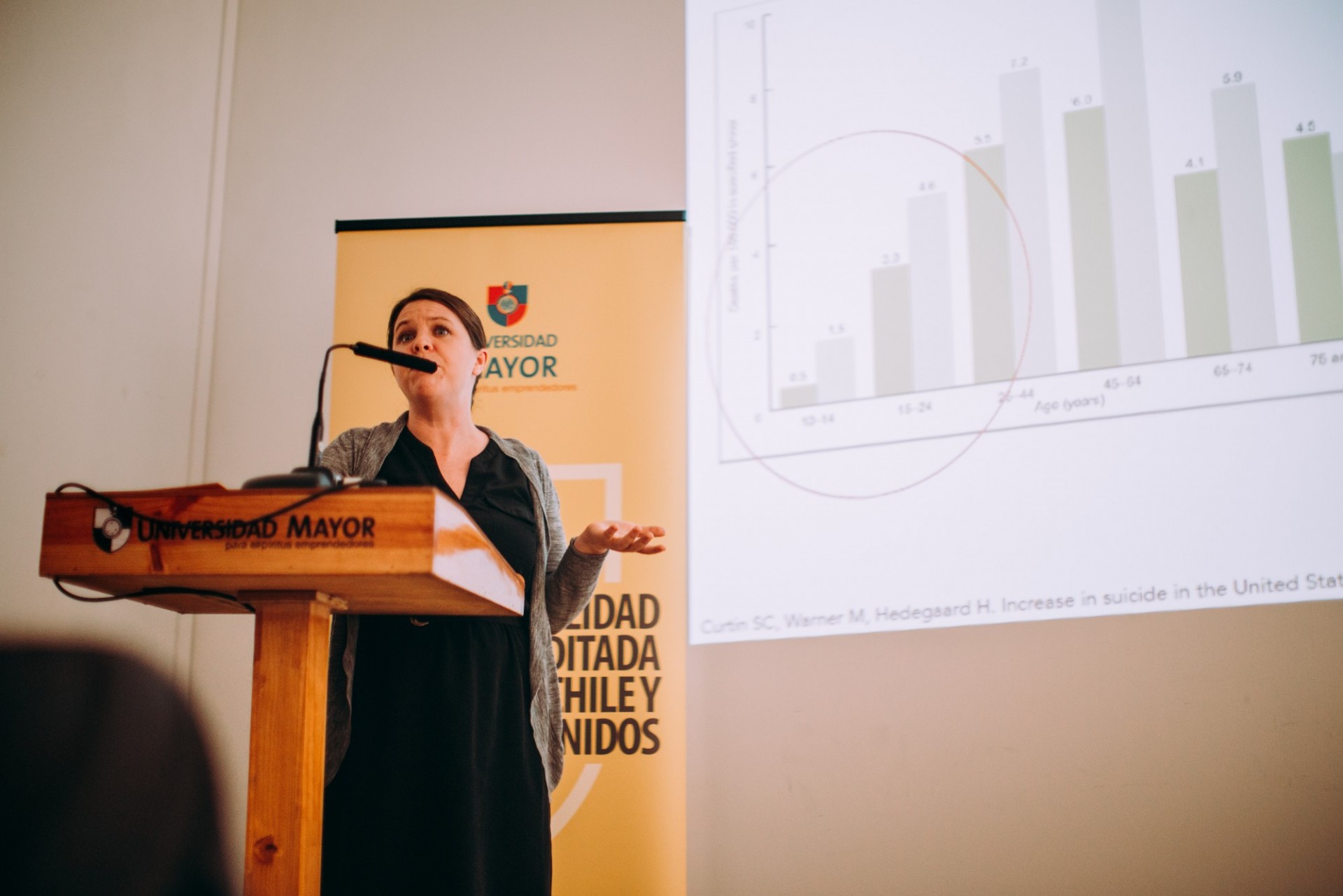Mailman’s Katherine Keyes Speaks on Recent Substance Abuse Trends

Mailman School of Public Health epidemiology professor Katherine Keyes drew from her recent research on substance abuse to launch the Universidad Mayor's Society and Health Research Center in collaboration with Columbia University.
The title of the presentation was "Trends in Alcohol Consumption and Mental Health among Adolescents: Lessons from the United States Experience."
Adolescent consumption of alcohol and cigarettes is declining to levels not seen in decades, she explained.
"There is just a rapid deceleration in experimenting with binge drinking and binge drinking," said Keyes. Teens "are simply not engaging in this behavior as they have decades ago."
The reduction is largely as a result of government investment in public health policies, she said, namely when policymakers increased the minimum drinking-age from 18 to 21.
In Chile, teen alcohol use is holding stable, while marijuana use is increasing significantly, almost doubling in six years. Marijuana use is also increasing in the United States, she said.
"I’m going to be really surprised if we don't see an increase in adolescent marijuana use, unless we use the tools that we in know in public health work," she said, referring to cigarette advertising regulations and other public policy measures.
She is also finding that mental health problems in U.S. teens, like suicide, depression and loneliness have never been worse. "We are not focusing on mental health at all," in public policy, said Keyes, whose research spans 170 peer-reviewed publications, two textbooks and focuses on life course epidemiology.
Adolescents are not spending time unsupervised and outside of their home like they used to, which partially explains why there is less chance of being exposed to alcohol or cigarettes, she explained. But, they are spending more time inside, which is enhancing isolation.
The increase in mental health issues is not necessarily due to finding refuge in computers, phone screens or televisions, she said. In fact, a moderate degree of daily screen exposure to smart phones is healthy, she said. In these cases, many adolescents are having positive networking engagements with other teens. And, increasingly a key to improving mental health outlooks is found on smart phones.
"At the end of the day, we don't think smart phones are the demon, in fact we think they are the solution," Keyes said.
Keyes' presentation was part of the "Building Healthy Societies" exchange program, collaboration between Columbia University, the Santiago Center and Universidad Mayor that supports academic exchange opportunities and collaborative research projects between the two countries.
Keyes was presented by the Provost of Universidad Mayor, Rubén Covarrubias, and the director of the research center, Esteban Calvo, an adjunct professor at Columbia's Mailman School of Public Health.
The mission of the Society and Health Research Center is to conduct research that advances the well-being of people at all stages of life, and at individual, social and institutional levels. Each year a professor from Columbia will teach at the Universidad Mayor, and vice-versa.
Calvo, an expert on aging, has collaborated with Keyes on several peer-reviewed publications about alcohol consumption. Currently, they are working on “How Much Do Older Adults Drink? A Cross-national Study of Alcohol Consumption Among Individuals Age 50 and Over Across 22 Countries”, which will be sent for publication in the International Journal of Epidemiology.
As part of her visit to Chile, Keyes met with staff at the Chilean addiction control agency, the Servicio Nacional para la Prevención y Rehabilitación del Consumo de Drogas y Alcohol (SENDA).
[T1]AP Stylebook and English language has commas inside of quotes, which is the opposite of Spanish-language.